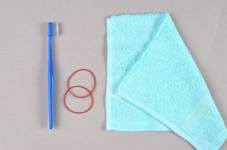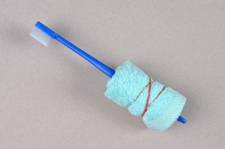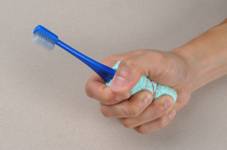If the person you care for has decreased dexterity, like people with stroke, Parkinson's Disease or dementia, etc., can brush but needs some help, you may think of ways to solve brushing problems based on their special needs and encourage independence in daily oral hygiene.


